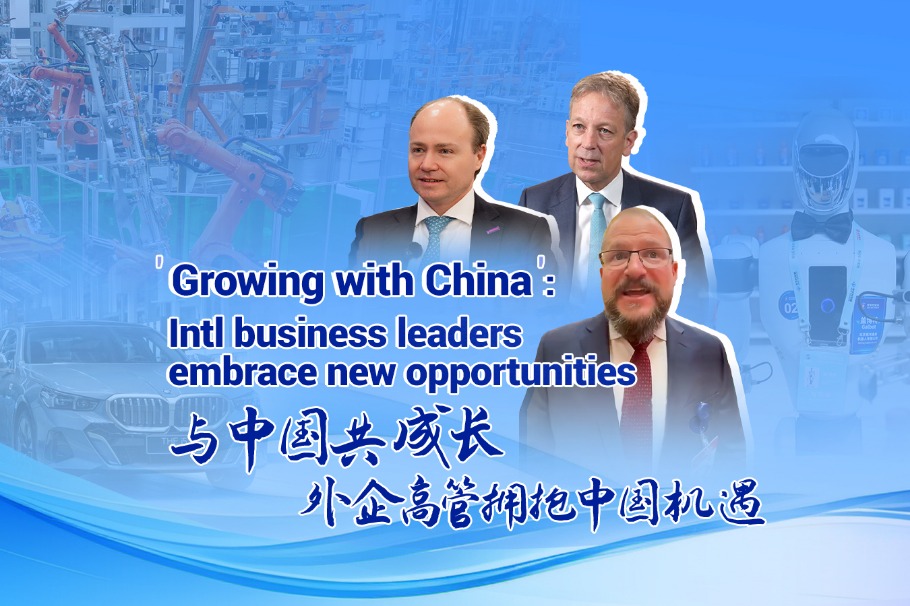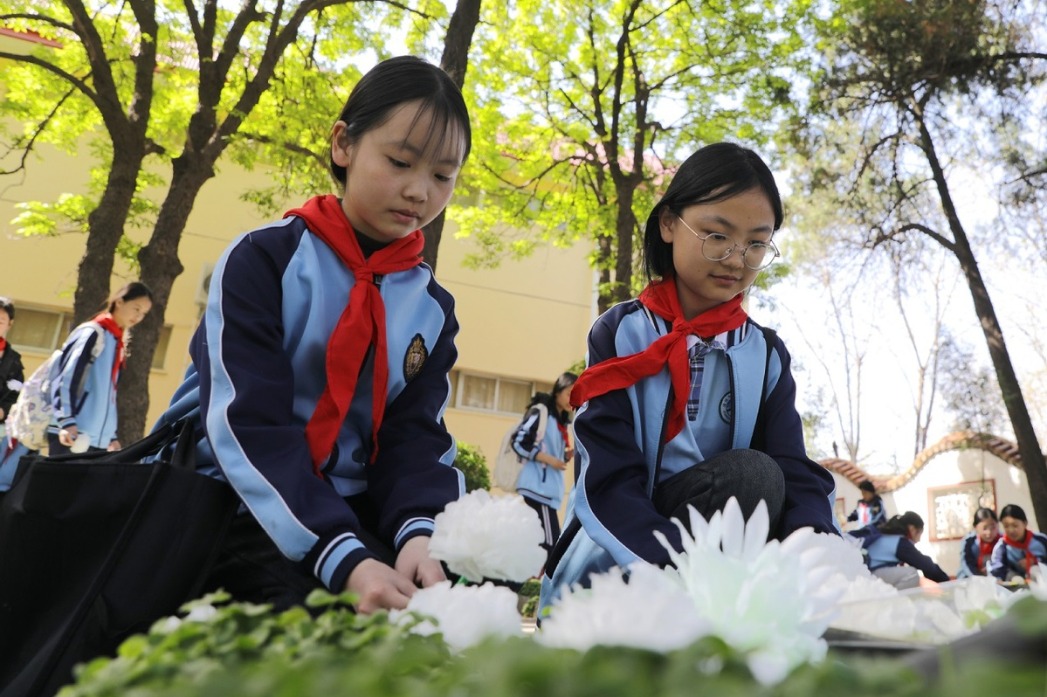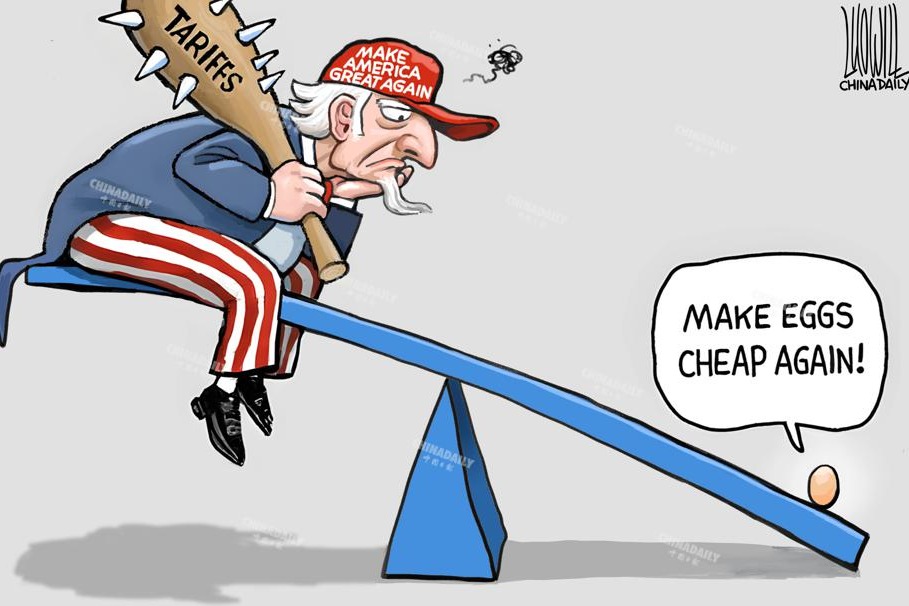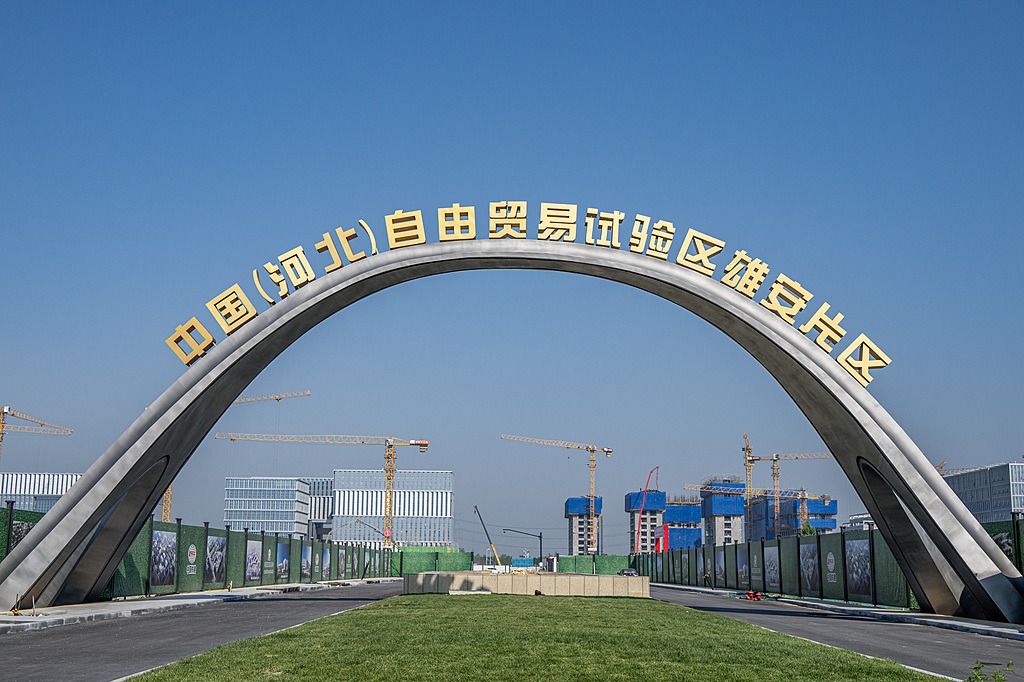US isolating itself in global trade

Trump's inherent policies may lead to US recession
Trump's additional tariffs announced on Wednesday were both expected and unexpected. It was anticipated that Trump would impose tariffs as part of his established policy, given his recent emphasis on intensifying tariff measures to correct the US economy and his strong belief in the role of tariffs in the US economy and international trade. However, the extent of the increased tariffs, especially toward China, may have surpassed expectations, including those of its allies, potentially causing disruptions and prompting negotiations with the US.
Undoubtedly, many countries will retaliate against the US, leading to significant negative impacts on the US economy and the global trade rules and system. This could disrupt the post-war international trade order.
Trump is currently facing inherent contradictions between his policies. While he needs to impose tariffs to boost the economy, this action could lead to inflation. Increasing tariffs on imports to the US will inevitably raise prices for consumers, potentially contributing to inflation. Additionally, attracting investments to the US while maintaining economic growth and lowering interest rates poses a challenge. The policies implemented could lead to inflation, making it difficult for the Federal Reserve to make decisions regarding interest rates.
These conflicting policies and the uncertainty they bring could potentially lead to a financial market downturn deliberately manufactured by Trump. This anticipation may serve his political interests in the short term, allowing him to shift blame onto his predecessor Joe Biden for any economic downturn. Before the upcoming midterm elections, Trump may introduce stimulating policies to revive the economy according to his ideals. This short-term economic downturn may align with Trump's political interests, at least in the current context and leading up to the midterm elections.
Chen Qi is a distinguished professor and director of the Center for US-China Relations at Tsinghua University.


































